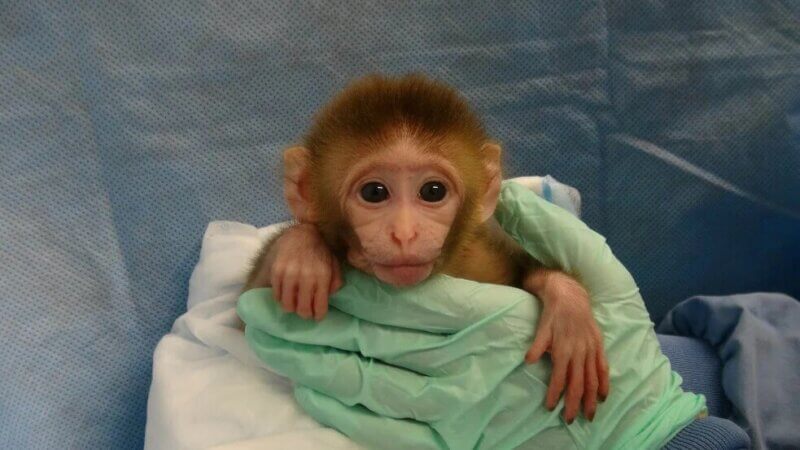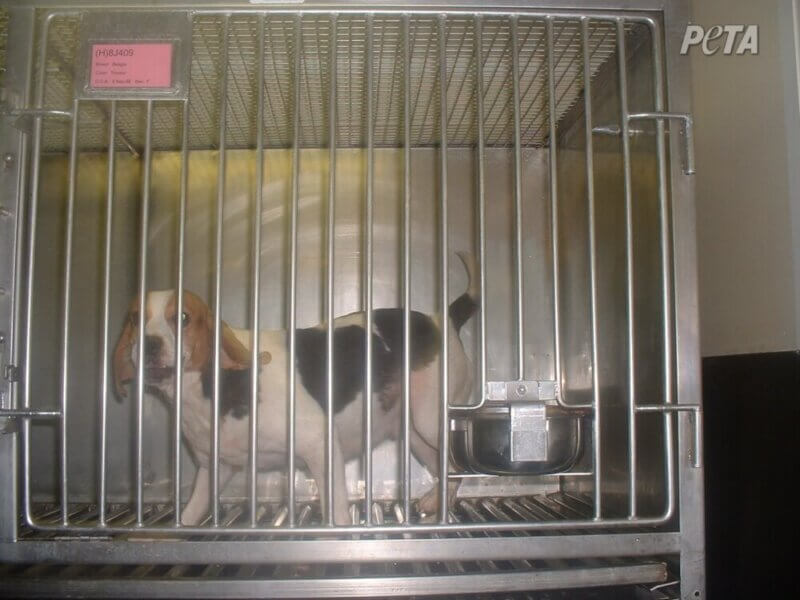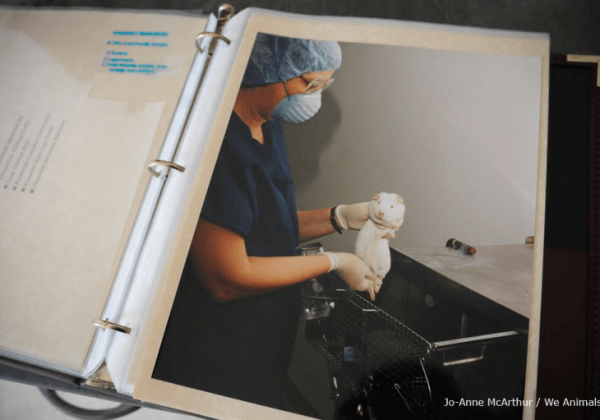
animal testing in France increases by 15% with almost 1.9 million procedures performed in 2021.
The Ministry of Higher Education, Research and Innovation has just published its annual statistics on the number of scientific procedures carried out on animals in France in 2021. What do they tell us, what do they not tell us , and what does the future hold for animals in laboratories?

Almost 1.9 million procedures on animals
These chilling numbers symbolize the pain and suffering of dogs, mice, rabbits, monkeys and other animals in our own country. It is outrageous to see that with the easing of pandemic restrictions, the number of procedures performed on animals in French laboratories is increasing by 15%, reaching a higher number than before the pandemic: 1,893,897 procedures in 2021, compared to 1,643,787 in 2020. The government missed its chance to accelerate the transition from archaic experiments to more relevant modern science.
Annual statistics tell us very little about the suffering endured by the animals used for testing, or by all those who waste away in cages without being used. In 2017, an additional 2.1 million animals were used as breeding machines in the cruel laboratory supply chain or killed, either to use their organs, or because they are considered surplus because they do not not meet the criteria for testing at any given time. The latest annual statistics exclude these figures: they were last taken into account when the European Commission explicitly required it.
More cephalopods, sheep and pigs
As every year, it is mice, rats and rabbits that suffer in the majority of experiments carried out in French laboratories. A particularly shocking figure in 2021, compared to the previous year, is the 380% increase in experiments carried out on cephalopods (from 299 to 1,134), animals known for their high intelligence. The number of experiments on sheep and pigs also increased dramatically: by 62% (from 2,827 to 4,587) and 27% (from 11,843 to 15,034) respectively.
14% severe procedures
Particularly striking is the high number – 266,747 – of experiences rated at the maximum severity level, which means that animals are subjected to intense and prolonged pain, suffering or distress. The most serious procedures include infecting animals with deadly viruses, causing them painful bone tumors, inflicting bone fractures without anesthesia or electric shocks, or forcing them to run until exhaustion on treadmills, or other inadmissible acts.
Poor science and suffering
Animal testing is not only painful, invasive and cruel, it is also scientifically inept. These flawed tests waste huge amounts of money, time and resources that could have been invested in research more relevant to humans.
It is estimated that between 50% and 89% of preclinical research cannot be reproduced, and the use of animals as models is often singled out as a problem area. The weaknesses of animal experimentation, however, cannot be overcome simply by improving study design. They are due to the inherent differences between species: animals cannot serve as analogues to understand the specific biological details that would allow the development of safe and effective drugs for humans.

France must decide on an exit strategy!
French opinion is clear: in a 2022 survey, 90% of respondents supported a total ban on animal testing where there is an alternative.
Scientists and policy experts at PETA have developed a strategy to phase out animal testing in favor of medical and scientific progress: the Research Modernization Deal . It contains a detailed strategy on how to free up funds for animal-free research methods and offers scientific support to government and public authorities.
Save lives: ask the government to act
Join the thousands of PETA supporters in urging the French government to end all animal testing, and come up with a strategy to get out of it! 
Posted on 2023-02-22 12:42








Comments